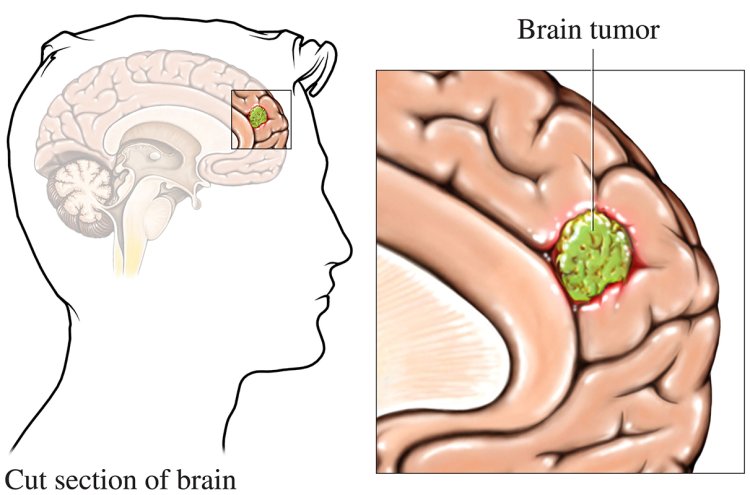Is a Cavernoma a Brain Tumor? Understanding the Differences and Implications
Share this Post to earn Money ( Upto ₹100 per 1000 Views )

Cavernomas, also known as cavernous malformations or cavernous angiomas, are abnormal clusters of blood vessels in the brain or spinal cord. While these vascular abnormalities can cause symptoms similar to those of a brain tumor, they are not classified as tumors. Understanding the distinction between cavernomas and brain tumors is crucial for proper diagnosis and treatment. If you or a loved one is facing a cavernoma or brain-related condition, Krishna Shalby Hospital offers advanced diagnostic and treatment facilities with a team of highly skilled neurologists and neurosurgeons to provide personalized care.
What Is a Cavernoma?
A cavernoma is a benign vascular lesion made up of abnormal, dilated blood vessels that form a compact, raspberry-like cluster. These lesions can occur anywhere in the body but are most commonly found in the brain or spinal cord. Cavernomas are filled with slow-moving blood and are often surrounded by a hemosiderin ring, which forms due to repeated bleeding or leakage of blood from the abnormal vessels.
Unlike brain tumors, which are composed of abnormally growing cells, cavernomas are not neoplastic, meaning they do not involve uncontrolled cellular proliferation. This key difference separates cavernomas from conditions like gliomas, meningiomas, and other types of brain tumors.
Symptoms of a Cavernoma
While many people with cavernomas are asymptomatic, some may experience a range of symptoms, depending on the location and size of the lesion:
- Seizures – A common symptom if the cavernoma is located in the cerebral cortex.
- Headaches – Persistent or severe headaches may occur due to irritation or bleeding from the cavernoma.
- Neurological Deficits – Symptoms such as muscle weakness, vision problems, or balance issues may arise if the cavernoma affects specific areas of the brain or spinal cord.
- Hemorrhage – A cavernoma may occasionally bleed, leading to serious complications like a stroke.
Is a Cavernoma a Brain Tumor?
The short answer is no, a cavernoma is not a brain tumor. Here are some of the main distinctions between the two conditions:
1. Nature and Composition
- Cavernoma: Composed of abnormally dilated blood vessels with no malignant or rapidly dividing cells.
- Brain Tumor: Composed of abnormally growing cells, which may be benign (non-cancerous) or malignant (cancerous).
2. Growth and Behavior
- Cavernoma: Typically grows very slowly or remains stable over time. It does not invade surrounding tissues.
- Brain Tumor: Can grow aggressively and invade nearby brain tissue, depending on the type.
3. Symptoms and Progression
- Cavernoma: Symptoms often occur due to localized pressure, irritation, or bleeding.
- Brain Tumor: Symptoms arise from the tumor's growth, pressure on surrounding brain tissue, or metastasis.
How Are Cavernomas Diagnosed?
Diagnosing a cavernoma requires imaging studies to confirm its presence and differentiate it from other brain lesions, including tumors. Common diagnostic methods include:
- MRI (Magnetic Resonance Imaging): The gold standard for identifying cavernomas. MRI can provide detailed images of the lesion, including the characteristic hemosiderin ring.
- CT Scan (Computed Tomography): May reveal calcifications or bleeding, but it is less sensitive than MRI for detecting cavernomas.
- Angiography: Rarely used for cavernomas as they are not usually visible with this technique.
Treatment Options for Cavernomas
The management of cavernomas depends on factors such as symptom severity, lesion location, and the risk of complications.
1. Observation
- Asymptomatic cavernomas that are discovered incidentally during imaging may not require immediate treatment. Regular monitoring through MRI scans is typically recommended.
2. Medications
- Symptoms such as seizures can often be managed with anticonvulsant medications.
3. Surgery
- In cases where the cavernoma causes significant symptoms or recurrent bleeding, surgical removal may be necessary. This is particularly true for accessible lesions that pose a low risk during surgery.
- Neurosurgeons at Shalby Hospital Krishna are equipped with cutting-edge technology to perform minimally invasive procedures, reducing recovery time and improving outcomes.
4. Radiation Therapy
- Stereotactic radiosurgery, such as Gamma Knife, may be considered for deep-seated cavernomas that are difficult to remove surgically.
Complications of Cavernomas
While cavernomas are generally benign, they are not without risks. The most concerning complications include:
- Recurrent Hemorrhage: Bleeding from a cavernoma can lead to neurological deficits or stroke.
- Epilepsy: Chronic seizures may develop due to irritation of the surrounding brain tissue.
- Progressive Neurological Symptoms: Depending on the location, cavernomas can cause worsening symptoms like weakness or sensory loss.
Cavernoma vs. Other Brain Conditions
Cavernomas can sometimes be confused with other brain conditions, such as arteriovenous malformations (AVMs) or brain tumors. Accurate diagnosis is crucial to determine the appropriate treatment plan. At Krishna Shalby Hospital, our neurologists and neurosurgeons collaborate to ensure precise diagnosis using advanced imaging techniques and comprehensive evaluations.
When to Seek Medical Attention
If you experience symptoms such as frequent headaches, seizures, or neurological deficits, it is important to consult a specialist. Early detection and management of a cavernoma can prevent complications and improve quality of life.
Why Choose Krishna Shalby Hospital for Cavernoma Treatment?
At Krishna Shalby Hospital, we provide world-class care for neurological conditions, including cavernomas. Our team of experienced neurologists and neurosurgeons is dedicated to offering personalized treatment plans tailored to each patient’s needs. With state-of-the-art technology and a patient-centric approach, we are committed to delivering exceptional outcomes.
Conclusion
A cavernoma is not a brain tumor, but it can cause symptoms that significantly impact an individual's quality of life. Understanding the nature of cavernomas, how they differ from brain tumors, and the available treatment options is essential for managing this condition effectively. Whether you're dealing with a cavernoma or any other neurological issue, Krishna Shalby Hospital is here to provide expert guidance and care. If you suspect a cavernoma or have been diagnosed with one, don't hesitate to reach out for a consultation with our team of specialists.
















